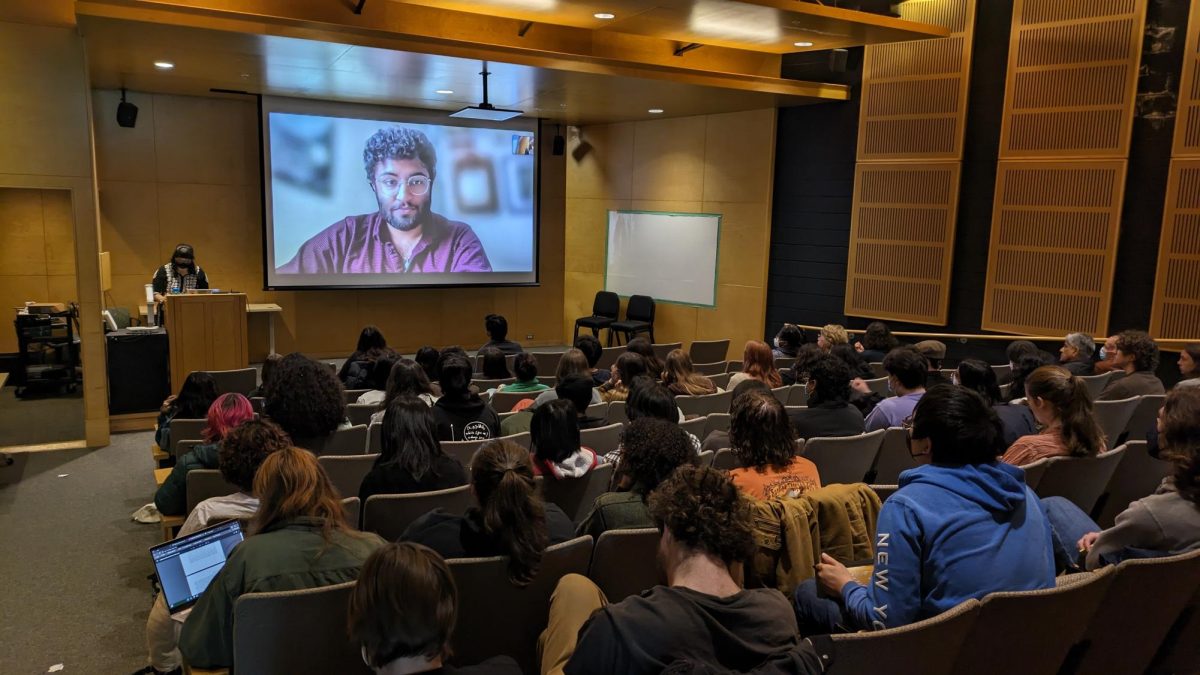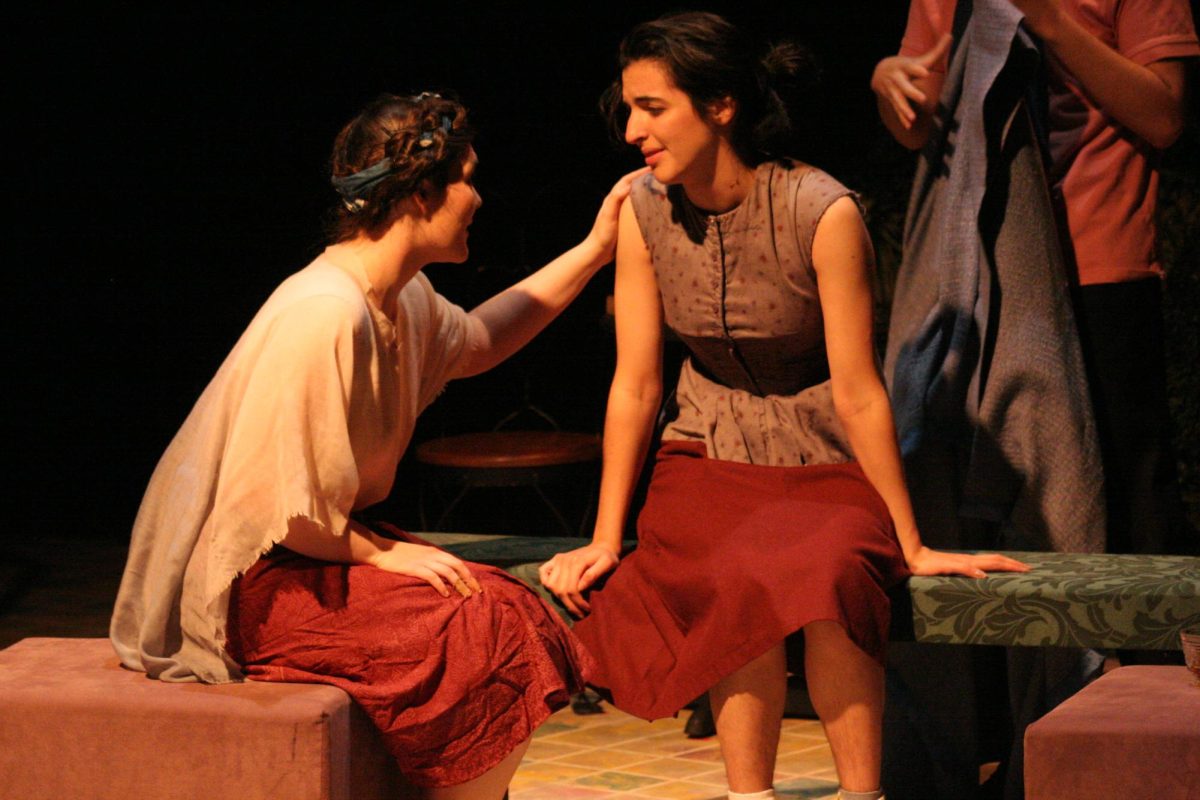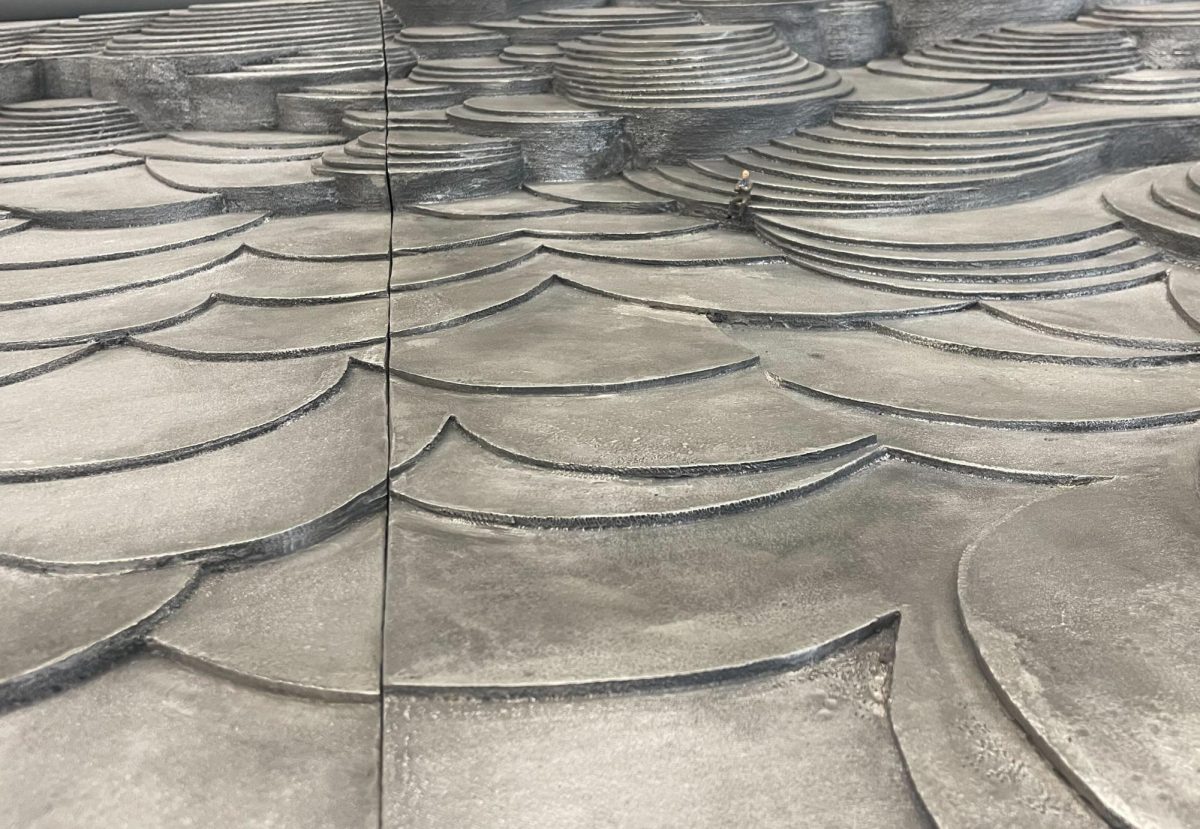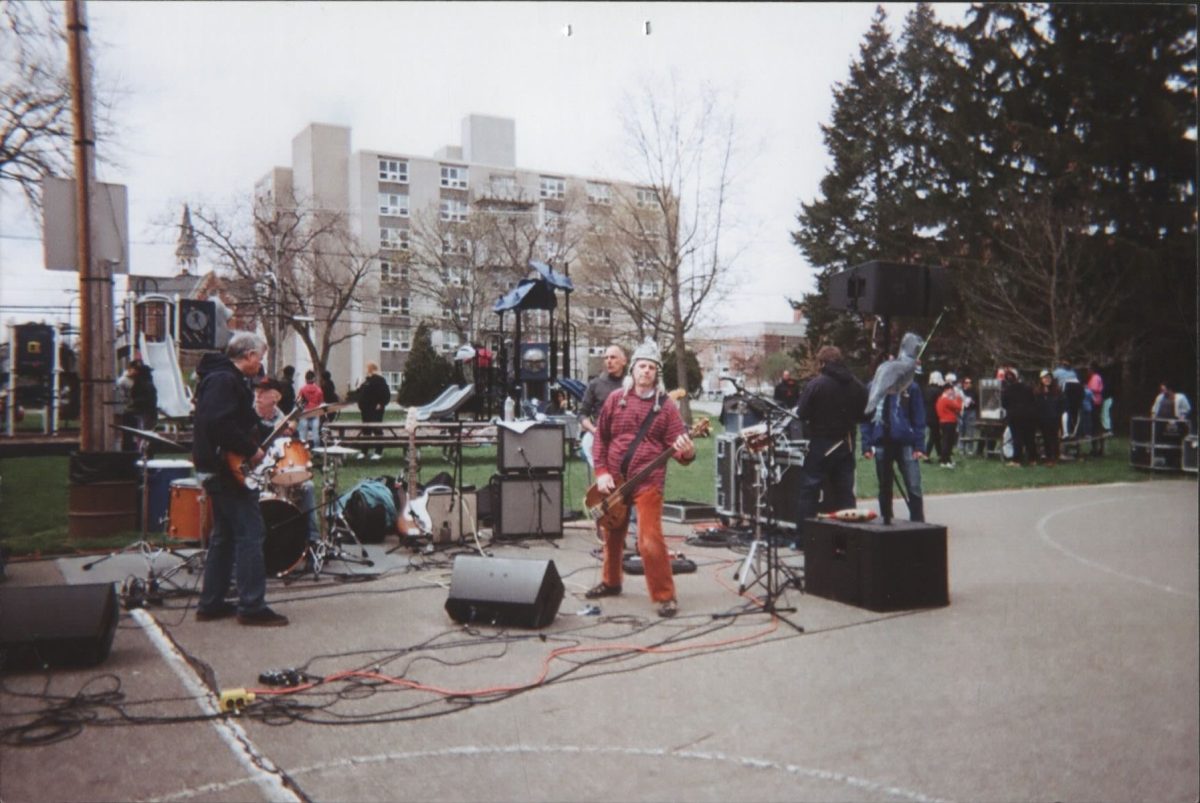God of Carnage Fearsome to Behold
November 2, 2012
Contrary to what pop culture will have you believe, the most violent acts people can commit against one another are not the blood-baths of CSI or Halloween horror flicks. We are most cruel in our day-to-day lives, creating sharp verbal edges on which our friends’ and lovers’ self-worths snag and unravel. To see these interactions up-close is excruciating, to see them in the enclosed space of a one-act theater production is positively mesmerizing.
So it is no surprise that God of Carnage, which ran Oct. 11–14, simultaneously elicited both a reaction of yearning to run from Little Theater and a desire to enter into the fray of the action onstage and shake the characters out of their impossible emotional savagery. Here lies the power of Yasmina Reza’s play, directed by College junior Michael Cunningham, in which two sets of posh New York parents come together to resolve a violent playground altercation between their children. Ben, the son of Alan and Annette Raleigh (played with palpable marital discord by College seniors Will Hofmann and Lizzie Roberts), has whacked the son of Michael and Veronica Novak (played by College junior Colin Wulff and College sophomore Miryam Coppersmith) with a stick, and now the adults must resolve the situation in the Novak’s ornate living room.
While the characters initially perch precariously on the edge of their seats, vibrating with nervous energy and tentative pleasantries, it does not take long for things to quickly devolve into something very ugly. The gentle elevation of action and volume of voice, completely imperceptible from moment to moment, is a testament to Cunningham’s skillful direction. By the end, they are dashing, flying and storming across the stage as though they are being blown around by a giant fan whose speed increased throughout the production, an effect aided by Michael’s introduction of alcohol about two-thirds of the way through the play.
Raw, nuanced and emotionally authentic performances by each of the actors made such an intricate and maddening psychological dance possible. Their performances were so thoroughly engrossing that it was shocking when, at the end of the show, the lights came back on and the actors joined hands, smiling, to take their bow. Michael is perhaps the play’s most mercurial character, winning and then discarding the viewer’s favor, and Wulff rose to this challenge adroitly. He played Michael with a slow-burning fuse, the claws coming out only after everyone else has descended into verbal massacre — and even then, Michael adopts a joyful ignorance in the face of disaster.
Coppersmith creates an excruciatingly convincing portrait of the Park Avenue neo-liberal as holier-than-thou Veronica, assaulting others’ viewpoints while failing to see the contradictions embedded within her own. Her devilish goading of Annette and Alan almost gives her an impish charm in the moments when the Raleighs are most obnoxious. Roberts does a bang-up Annette, portraying a prim-and-proper woman quaking with social anxiety that good manners, she believes, will assuage. Only when she is nice and drunk does Annette snatch Alan’s cell phone when it interrupts their conversation for the 10th time and dunk it in the Novak’s flower vase. She reduces the big-shot lawyer to a deflated, fuming little boy in one fell swoop, allowing the audience to breathe a sigh of satisfaction. Hofmann’s Alan tries to rush the entire meeting along, getting to the point as brusquely as possible. His politically incorrect brashness is often the injection of honesty the audience needs to relieve its collective anxiety.
God of Carnage challenges audiences’ notions of narrative alliance, often to emotionally distressing ends. We want so desperately to like the protagonist of the play, film or TV show we’re watching, to see humanity with which we can identify within the spectacle before us. Reza alternately fosters and then refuses this impulse on a moment-by-moment basis, resulting in the sort of panicked cognitive dissonance that seized the audience as they watched the play in genuine horror. Every character moves between infuriating and helpless, stranded on an island of rapidly shifting standpoints and alliances. At one moment, we’re drawn to Michael’s peacemaking diplomacy, while in the next he calls the Raleigh’s son a “snot-nosed jerk.” Likewise, Veronica berates Annette for vomiting on her art books and coffee table in one moment and then giggles about their husbands’ ineptitude in the next, laughing at her furious self of five minutes ago. Nobody lets sleeping dogs lie in God of Carnage, either — innocent and malicious comments alike are dragged out again and again throughout the play, and each character rakes the others’ through the coals for them ad nauseum.
Reza does not stop her carnage here. As the adults attack each others’ professions, politics and parenting philosophies — often with a snide backhandedness that draws blood once everyone has done away with civility — they must reckon with the hypocrisies that have tormented the audience, though no one emerges changed for it. Veronica decries the prevalence of violence in society, playing victim on her sons’ behalf and lecturing the other parents on her research of African war zones. But by the end of the play, she has snatched Annette’s purse out of her hands and smashed it repeatedly on the floor.
God of Carnage ends with Veronica curled up in a ball on her couch, drunk and shaking, her entire self-worth pummeled and deplored by Alan, with a son still in the hospital and a husband who hates her. And yet, she’s gotten what she deserves for purporting to be better than anyone else in that room. We are all capable of terrible things, Reza says, and they are not committed on battlefields or in boardrooms. The things that ruin people are said in bed or at the dinner table. What is most destructive, we see, is often what goes unsaid.














